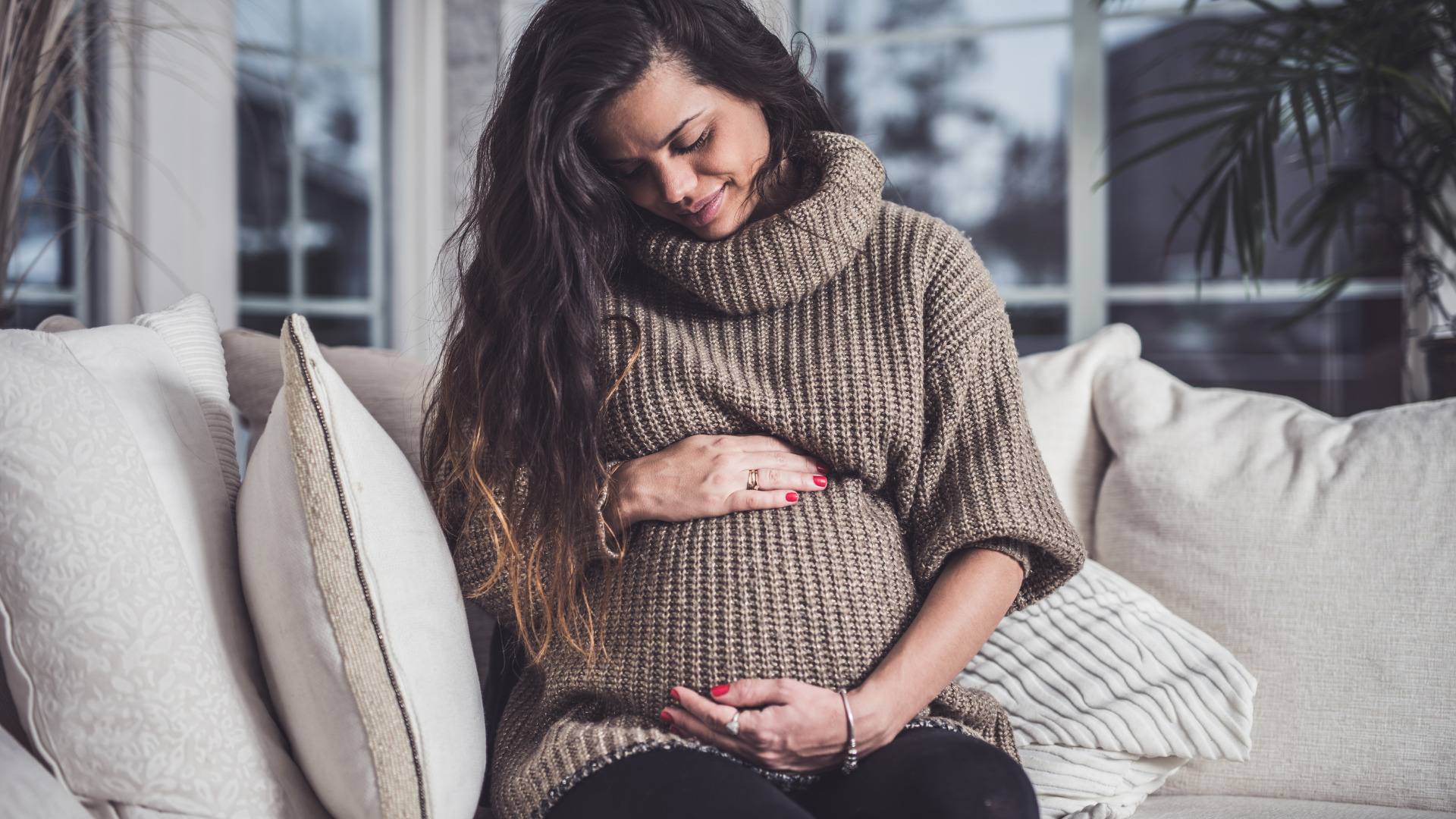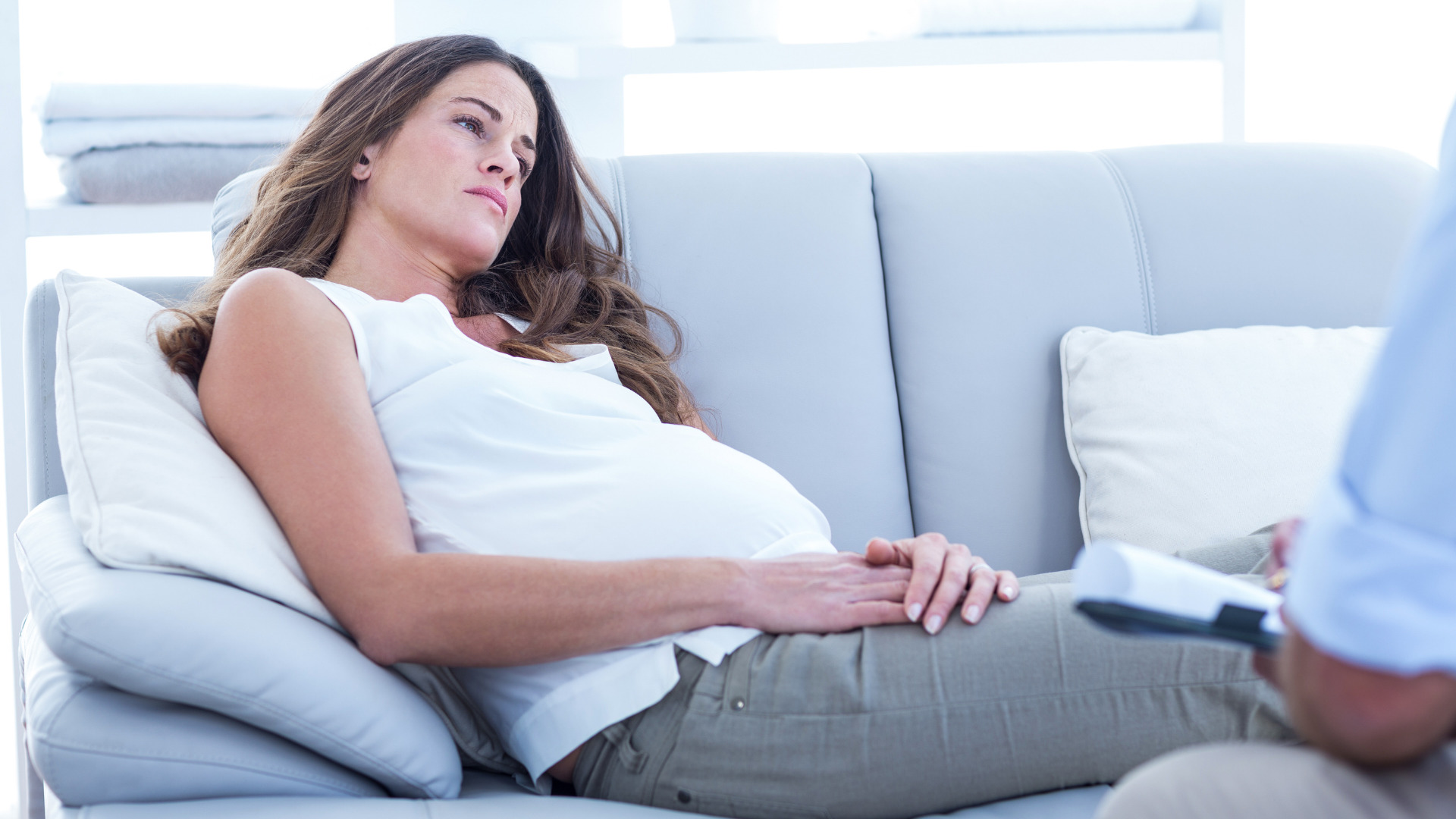

The Myth Of The Happy Pregnant Woman
The image of the peaceful expectant mother, lovingly cradling her big belly is one we are all familiar with, but as anyone who’s actually been pregnant will tell you, pregnancy can bring with it many moods and discomforts. For some women (up to 33 percent) darker feelings during pregnancy can shift into depression, or debilitating anxiety.
While there is more awareness on postpartum depression, many people, including doctors still have little knowledge about the mental health concerns that pregnant women can experience. Yet the consequence of unmanaged depression or anxiety during pregnancy can be severe for the mother including suicide, preeclampsia, preterm labour, a higher chance of C section, post partum depression. For a child, complications from a mother having untreated mental health issues during pregnancy include low birthweight, infant respiratory distress, and low APGAR score (a rate for newborn health after delivery).
Pregnant Women Often Have Their Feelings Minimized
“Hi Mama!” “Wow you are getting so big” “Oh if you’re nauseous that means the baby is healthy!” “Are you sure there aren’t two babies in there?” “How are you feeling? I’m sure you must be over the moon!” The barrage of questions and comments during pregnancy is never ending. Even worse, most questions are practically rhetoric as the person saying them doesn’t listen for a real response, or if the mom-to-be dares to say something less than positive, they are immediately “reassured” and have their feelings dismissed. If a woman has suffered from an eating disorder in the past, or if they simply have body image issues (which so many of us do), the constant observations about her ever-enlarging shape can also bring distress. This is the life of a pregnant woman, to be in the spotlight, whether she likes that or not. Now imagine if there is something going wrong with her pregnancy, if the fetus or her body is having complications, the comments and questions can become even more unbearable.

It Can Be Hard To Identify Depression And Anxiety During Pregnancy
When someone is told how she should be feeling during pregnancy, it can make it easy to dismiss or ignore her own feelings. Depression doesn’t always look like crying and general sadness, often there can be a sense of irritability that won’t go away, or even a numbness to any feelings at all. Anxiety during pregnancy is also hard to recognize, since worries about the future and the present health of a developing pregnancy and fetus is normal. But when the worries are keeping someone awake at night, and persist even when they are consciously making an effort to draw attention elsewhere, that may be chronic anxiety. Below is a list of both depression and anxiety symptoms during pregnancy that should not be ignored.
Symptoms of Depression During Pregnancy
- Feeling sad, hopeless, “empty,” more on than off for two weeks or more
- Finding hobbies or events that used to be enjoyed, now bring no pleasure
- A lack of interest in the lives of friends and family
- A nagging sense of guilt, without real cause
- Not believing you will be a good mother, or that you deserve to be one
- Exhaustion beyond normal pregnancy tiredness
- Changes in appetite
- Suicidal thoughts or ideations
- Getting too much sleep, or not enough sleep
Symptoms of Anxiety During Pregnancy
- Worrying without being able to stop
- Feeling irritable
- Insomnia
- Restlessness
- Lack of concentration
- Intrusive thoughts
- Obsessive, repetitive thoughts or behaviors
- Panic attacks
How To Get Support If You Or Someone You Care About Is Experiencing Depression Or Anxiety During Pregnancy
Depression and anxiety are both highly treatable mental health conditions, even during pregnancy. There are many different approaches to receiving treatment. The first step is to reach out to your primary healthcare provider and tell them your symptoms. They may recommend supportive steps to take such as talking to a counsellor who specializes in maternal mental health, adding in or increasing safe forms of exercise, attending pregnancy mental health support groups, or taking medication.
If someone close to you is pregnant and appears to be experiencing depression or anxiety, express your concerns to them in a gentle, curious way. So much of the time during pregnancy women are talked at, rather than to, and simply opening up a real dialogue of how to support her can be a great first step. Saying something like “I noticed you haven’t been yourself lately and I want to check in to see if you’d like me to help you find some extra support?” is a good way to broach the topic. Avoid talking about her pregnancy, and rather focus on her feelings. Encourage her to reach out to her doctor, or ask if you can look up counsellors or support groups, but most of all, listen more and say less.
Remember That Once The Baby Is Born, Mom Still Needs Support

Women who experience perinatal depression and anxiety are at a higher risk for postnatal mental health issues as well. Once the baby is born there is lack of sleep, pain from birth, breast or bottle feeding challenges and many other complications to deal with. Dropping off home cooked meals (scheduled in advance), texting to see how mom is doing, or simply mailing a card or care package can go a long way towards letting her know that she is being thought of, and that she matters. If you are invited over for a visit, offer to do a load of laundry, or wash up some dishes, rather than just sitting and looking at the baby. Again, ask how things are beyond just the baby, how is she doing? Does she need anything to help her feel more like herself again?
When a woman is pregnant, the focus is entirely on them for 9 months, and even if that is very challenging, it can be quite jarring how quickly all of the attention is then immediately shifted to the baby. Having someone who checks in on how she is doing can go a long way towards feeling more grounded and self aware again after the pregnancy is complete and motherhood has begun. As the world continues to change and adjust due to pandemics or other potential challenges, new parents will also continue to need their friends and family to rally behind them and help them navigate their own very small world. The saying “it takes a village to raise a child” has been around for a long time for a reason. Families need community support in order to thrive. Being a part of that village in any small way that you can, really can make a big difference in someone’s life.
*Statistics for this article can be found here: https://www.parents.com/pregnancy/my-life/emotions/coping-with-anxiety-and-depression-during-pregnancy/

